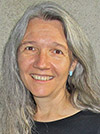On whose authority?

While Google helps answer some questions, the Catholic Church has its own structure and tradition for answering the questions of faith. (Photo: Unsplash)
I know some things, and so do you. No one lives very long in this world without picking up a certain amount of experience, knowledge, and wisdom on-the-go. But I’ll be the first to admit that not everything I think I know is really so. Not every idea I carry around in my head (and on which I bet my daily decisions) is dropped in there by cosmic revelation. Angels rarely talk to me—or if they do, I don’t always listen up.
But what do we do when we’re not sure that the information we’re working with is accurate? In the information age the answer’s obvious: Troll for the facts. A Google search has provided a one-stop solution to simple problems I’ve recently had, such as determining how to cook a still-frozen turkey; where to buy waterproof boots; figuring out how many movies Patrick Swayze made. But as we all learn, some sources for “the facts” are more reliable than others.
We learn, in other words, that gathering information isn’t enough. Not all resources for the truth are created equal. Some sources are authoritative. Others offer more or less what I’m already doing: caging the odds and making my best guess. That is why we have authority, and why we need it.
A big deposit
In matters of faith, Catholics have developed a structure of authority known as the magisterium. It’s the teaching power of the church, laid down in gospel terms when Jesus calls Saint Peter his rock and later when the apostles are on hand in the upper room to receive the guiding and illuminating Holy Spirit. Through apostolic succession—the “laying on of hands” that confers leadership on each new generation of the church—connection to that original authority has been protected and passed forward. I know that there’s little in my life of faith that doesn’t come to me directly or indirectly as a result of 20 centuries of magisterial collaboration.
What does the magisterium provide for each generation of the church? It’s entrusted with the deposit of faith: that “trustworthy teaching” scripture refers to that guarantees “a remarkable harmony” between the church’s leadership and faithful membership, in the words of the Catechism of the Catholic Church (CCC no. 84). The deposit of faith doesn’t belong to the clergy alone, guarded in a hallowed vault of truth, but is the treasure of the whole church. We maintain it by professing and practicing together what has “come to us from the apostles,” as we say at Mass.
Authority
The quality by which persons or institutions make laws necessary for unity and the common good (Catechism of the Catholic Church nos. 1897-1912).
Magisterium
The teaching office of the church entrusted to it by Jesus Christ since the time of the apostles (Catechism of the Catholic Church nos. 85-87).
Depositum fidei
The “sacred deposit” of the faith contained in scripture and tradition. Term introduced at the 16th-century Council of Trent (Catechism of the Catholic Church no. 84).
Scripture and tradition
Closely bound elements that together contain the deposit of faith (Catechism of the Catholic Church nos. 80-82).
Sensus fidei
The “sense of faith” shared by the whole church, officially introduced in the Vatican II document Lumen Gentium (nos. 12 and 35). First proposed by John Henry Newman (Catechism of the Catholic Church nos. 904-907).
Pope John Paul II reminded the church that an earlier pope, Pius XII, once declared that “lay believers are in the front line of church life; for them the church is the animating principle of human society. Therefore, they in particular ought to have an ever-clearer consciousness of not only belonging to the church, but of being the church” (CCC no. 899).
How do we express the deposit of faith all together, then, as church? Through thoughtful attention to and study of scripture. By being informed about the long history of doctrine and the documents that make up church teaching, including those being added regularly by local bishops and the pope today. By participating in the sacramental life of the church and nourishing our own spiritual growth. Speaking of faith as a deposit might sound like it’s something locked up for safekeeping to prevent it from being stolen or damaged. Actually, nothing could be further from the truth! This is one treasure that needs to get out more.
The deposit of faith comes in two main containers, marked scripture and tradition. Which came first, people often wonder, and which is more important? That is a little like saying: Which came first, your mother or your father? While one may be older by calendar years, neither was technically your parent until they both came together and you were conceived. In the same way, while sacred texts of many kinds were written by prophets and sages for centuries, the book we call the Bible didn’t exist until the community of the church compiled, sorted, and confirmed its contents.
The tradition of the church is therefore responsible for scripture as we know it. Yet it’s unfair to say tradition came first because it took those ancient writings and so many more to produce the community who would know itself as the People of God. The texts existed, and the community existed, and when the two came together inspired by the Holy Spirit, both scripture and tradition took their first unified breath. The magisterium, or teaching church, provides and promotes the deposit of faith. And the deposit contains both scripture, which is no longer added to, and tradition, which is vital and expanding in each new age.
Sometimes on the long pilgrimage of the church, leaders—because they’re human beings prone to partial understanding and honest ignorance—are mistaken. When this happens, the grassroots faithful to whom the Holy Spirit is likewise entrusted must lead the way. The Spirit draws up from the whole body a sense of the faithful (sensus fidelium) that engenders change in church understanding,
The faithful can (and will) do that, because of the very deposit of faith, protected by the magisterium, that informs and guides us all.
A version of this article originally appeared in VISION 2013.
Related article: VocationNetwork.org, “Ten great things about being Catholic.”
Tags
Related
- What Catholics believe about the Eucharist
- How Jesus embraced his call
- Prayer: Our never-ending conversation with God
- What the church is teaching—and learning—about the sin of racism
- Church defined: Jesus calls; we respond
- A Creed to believe in
- Ten great things about being Catholic
- Following Jesus: Be ready for some surprises
- Enter into the divine
- What Catholics believe about Jesus Read More
Most Viewed
- Find your spirituality type quiz
- FAQs: Frequently asked questions about vocations
- Celibacy quiz: Can you live a celibate life?
- Resources for older discerners or those with physical and developmental differences
- About Vocation Network and VISION Guide


